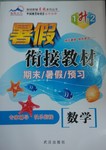题目内容
第一节 (共5小题;每小题1.5分,满分7.5分)
听下面5段对话。每段对话后有一个小题,从题中所给的A、B、C三个选项中选出最佳选项,并标在试卷的相应位置。听完每段对话后,你都有10秒钟的时间来回答有关小题和阅读下一小题。每段对话仅读一遍。
1.What was Mr Smith when the woman was a school teacher?
A.A teacher. B.A student. C.A doctor.
2.What does the woman mean?
A. She has no time to see the computer.
B. She is eager to see the computer.
C. She wants the computer.
3.Why didn't the woman get the job?
A. She is not old enough.
B. She is not good at the job.
C. She is no longer young.
4.Where is the nearest bookstore?
A. On the opposite side of the road from the post office.
B. Next to the post office.
C. Far from the post office.
5.What can we learn from this dialogue?
A. They are talking about holidays.
B. The man will be waiting for her at 4.
C. The woman wants to visit the man tomorrow.
第二节 (共15小题;每小题1.5分,满分22.5分)
听下面5段对话或独白。每段对话或独白后有几个小题,从题中所给的A、B、C三个选项中选出最佳选项,并标在试卷的相应位置。听每段对话或独白前,你将有时间阅读各小题,每小题5秒钟;听完后,各小题将给出5秒钟的作答时间。每段对话或独白读两遍。
听第6段材料,回答第6至8题。
6.Where is the new sports center?
A. On Hill Road. B. On Mill Street. C. On Station Road.
7.What sport did the man do last week?
A. Swimming. B. Basketball. C. Tabletennis.
8.When will they go to the sports centre?
A. On Friday. B. On Thursday. C. On Wednesday.
听第7段材料,回答第9至10题。
9.What can we know from the conversation?
A. J.K.Rowling is an orphan.
B. The British writer has become rich by writing.
C. Mike is writing a novel now.
10.What will the woman probably do after the conversation?
A. Visit a bookstore.
B. Borrow the novel from the man.
C. Finish the novel as fast as possible.
听第8段材料,回答第11至13题。
11.What is the relationship between Jack and the woman?
A. Brother and sister. B. Husband and wife. C. Mother and son.
12.Why is the woman angry with Jack?
A. He spends too much time on the computer.
B. He doesn't do his school work at all.
C. He won't follow the man's advice.
13.What does the woman ask the man to do?
A. To phone Jack's teacher.
B. To have a talk with Jack.
C. To help Jack with his lessons.
听第9段材料,回答第14至16题。
14.What can we know about Helen?
A. She is in New York now.
B. She was born in New York.
C. She will go home by train.
15.Who has booked the ticket for Helen?
A. The man. B. Rose. C. Helen herself.
16.When is Helen invited to dinner at the man's?
A. This Friday. B. Next Sunday. C. This Sunday.
听第10段材料,回答第17至20题。
17.When did Alice make up her mind to be a nurse?
A. After she left school last year.
B. When she was just a little child.
C. When she began to study in a big hospital.
18.Which of the following statements is NOT true according to the passage?
A. Alice went to classes every day.
B. Alice hated to care for the old people.
C. Alice studied late at night.
19.What was Alice told to do one day?
A. To serve meals.
B. To bath the patients.
C. To clean the patients'false teeth.
20.How long did it take patients to find their teeth?
A. Half an hour. B. One hour. C. One hour and a half.
第一部分:听力理解
1.B
2.B
3.C
4.A
5.C
6.A
7.C
8.A
9.B
10.B
11.C
12.A
13.B
14.A
15.C
16.A
17.B
18.B
19.C
20.A

 暑假衔接教材期末暑假预习武汉出版社系列答案
暑假衔接教材期末暑假预习武汉出版社系列答案 假期作业暑假成长乐园新疆青少年出版社系列答案
假期作业暑假成长乐园新疆青少年出版社系列答案